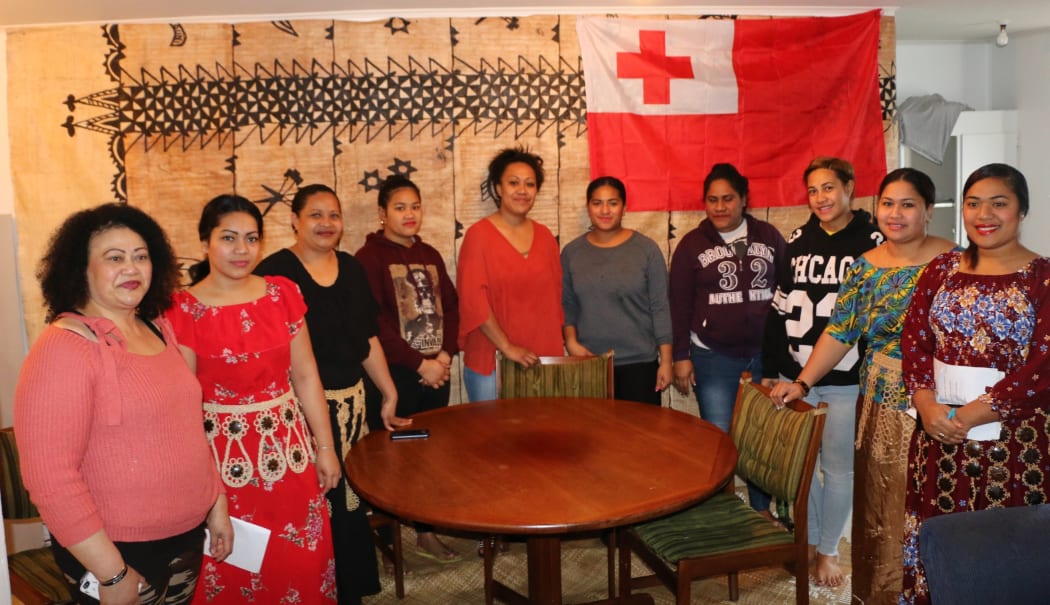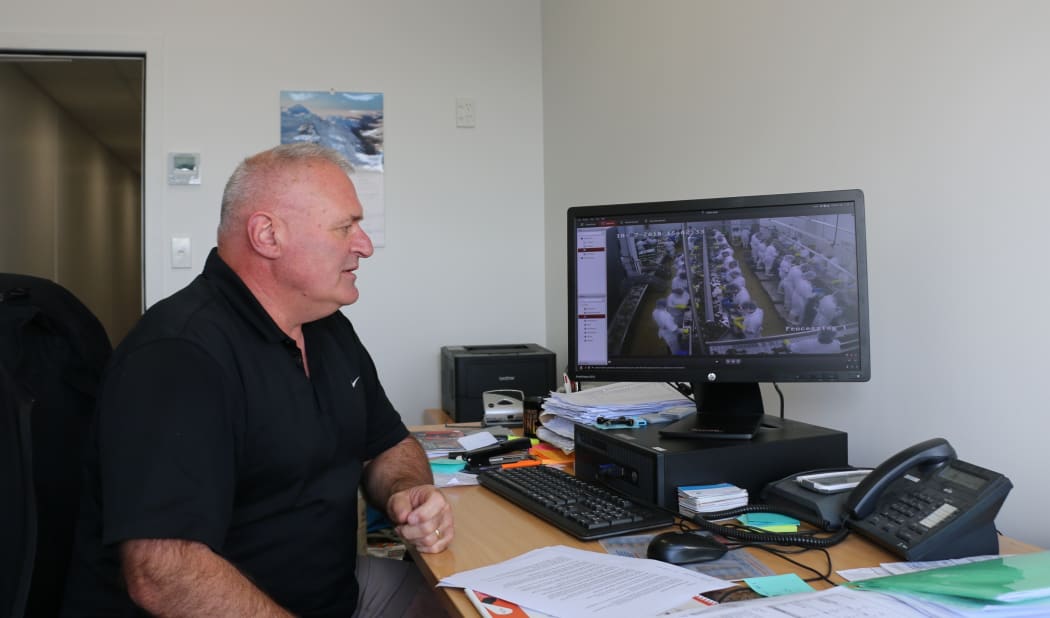From Tonga, with love.
Noelle McCarthy visits a south Auckland mussel processing plant and finds a story of labour shortages, self-sacrifice and seafood.
Sandy Natazer Niu knows why she’s in New Zealand. “We come here to work for our families. To provide for our families. In our minds and our souls, we have to help our families in Tonga, that’s why we came here for working. That’s the main reason, for our family.”

Home away from home. The nine Tongan women turn their shared living space into a reminder of what they are working for. Photo: RNZ
Sandy has left her four children behind in Tonga to work in a mussel processing factory in Drury, south Auckland.
Along with eight other women she has turned their shared living space into a small piece of the island kingdom, complete with flag and tapa cloth made by one of their own, Kalisi Tonga.
This is an everyday story about the economics of immigration, capital and labour. It’s a story about money and sacrifice, hard work and opportunity – and also a story about love and family.
Steve Haywood is the general manager of Sea Products Mussels, a business owned by the Bull family where Sandy and her co-workers have been employed for the last three months. Sea Products export frozen mussels to 15 countries around the Pacific, from the US to Australia and all through Southeast Asia. They process 40 tons of mussels a day, running two shifts to optimize output.
“We need 160-180 staff and of those 50 percent are mussel openers. It’s a manual job – in the south island that job can be done robotically but the north island mussel has a bit of barnacle on the shell so we have to do it manually so that’s why the large number of staff.”
But Sea Products, like much of the seafood industry, has been struggling to get the number of staff they need. Steve Haywood says they “tried everything. At one stage we had 350 people had come through here in three months and about 80 of those were still working here. So we had a high turnover of staff that tried the job but it wasn’t for them.”
Sea Products turned to an immigration lawyer and applied for an Approval in Principle (AIP) through Immigration New Zealand and the Ministry of Business, Innovation and Employment. The program is used in primary industries like farming or forestry that need foreign workers but MBIE says this is the only AIP they know of specific to aquaculture. Before being granted the AIP the company was audited by the Ministry of Social Development to ensure they had exhausted all avenues of employing Kiwi labour.

Steve Haywood, general manager of Sea Products Mussels. Photo: RNZ
Now Steve Haywood says he couldn’t run a night shift without the Tongan workers, meaning output would fall by around 25 percent. The exact numbers are commercially sensitive but much of the factory’s revenue goes to covering fixed costs – if the net profit were to drop below a certain point, this export business and its 180 jobs in the sustainable aquaculture industry would no longer be economically viable.
The work is not easy. Openers stand and shuck steamed mussels plucked from conveyor belts for two and a half hours between breaks; the Tongan women open mussels on the night shift, which runs from 4pm to one in the morning.
But Anna Grewe, the Sea Products employee who put together this group of women from her own network of contacts in Tonga, says finding willing workers in the Pacific isn’t difficult.
“It’s easy to get the people over there. It’s big money, a lot to send back through money transfer. And that’s why the people in Tonga they’re willing to come to help out and to help their family.”
Anna says wages in Tonga are more like a hundred dollars a week. “But work over here… if you see when they get paid, their face – wow! It’s huge money. And their first pay they got one thousand and something. Some of them nearly cried. And their family over there are so happy. They came here and left their family over there, their kids, the young ones, come over here and sacrifice themselves to work hard and earn the money and send it to the families.”
The money isn’t a fortune by New Zealand standards. The women all started on minimum wage, 16 dollars 50 an hour – but Sea Products pay piece rates meaning workers can dramatically increase their income as they work harder. ‘Gun’ openers – the ones who set the pace on the chain - make 30 dollars an hour or more; Steve Haywood says that after only three months most of the women are earning around 18-22 dollars an hour.
Still, home is home – and as they come to the end of their work visa in New Zealand, this choice they’ve made, however beneficial it might be financially, leaves them with complicated feelings.
Kalisi Tonga makes handicrafts, including tapa cloth, in Tonga. “I can’t wait to go back. I miss my family. I have three kids. The oldest one is nine years old. And my little one is three years old.”
The difficulty of that wrench, of being away from her young family for months on end, is plain to see. But would she like to come back?
“Yeah. I want to come back here and work, help my family but if the company still want us and I hope the arrangement is still the same.”
The arrangement looks set to continue. Steve Haywood says that next year, as well as the workers from Tonga, Sea Products will be looking to Samoa as well.

